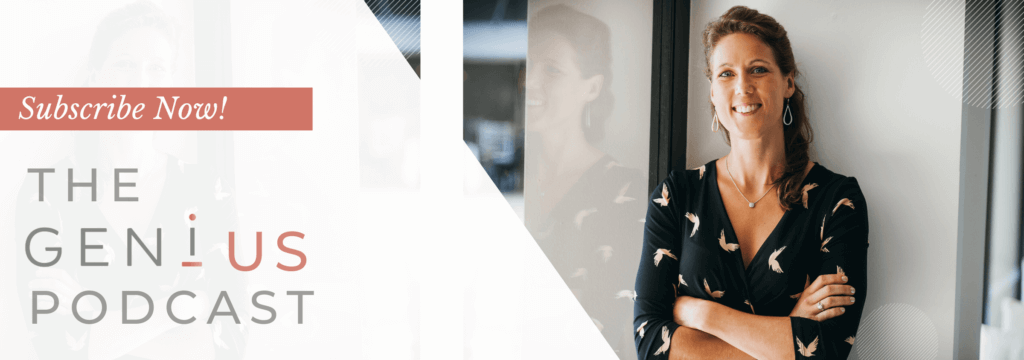Why You Need to Consider the Six Human Needs in Your Business.
The Six Human Needs were outlined by the author and speaker, Tony Robbins, who argues that there are six needs that motivate people – that are at the core of all human action. He first revealed them in a TED Talk back in 2006, and Robbins’s has since become one of the ten most watched TED Talks of all time.
These six needs – certainty and uncertainty, significance and connection, growth and contribution – make us do what we do.
But in each of us they manifest in different ways, and one need might be more fundamental in one person than in another.
As always, what has been interesting for me, is how this relates to structure – the processes and procedures in your business. Understanding of these six needs can really help you put the human back into HR and place empathy at the heart of your business culture and structure.
People are key to your business. How they work and interact will have a major impact on your business. Simply: do you understand people? Do you get what makes them tick? What drives them? And not just your team. This applies to your customers too!
I believe that a little psychology goes a long way in business. However, this insight is not to be used to manipulate your team or customers with a series of tools and techniques.
I am about understanding and empathy: the better we understand how our mind works, the better we can have understanding and empathy for others, their actions and needs.
The Six Human Needs are a great way of considering the aspects of our intention – that thing that motivates us. And I believe that it is insights like these that lead to more conscious leadership and a critical shift in how we manage our businesses.
The Needs of the Personality
For Robbins, the first four needs are what he calls the ‘needs of the personality’, the impulses and desires that make us behave the way we do. Each of these needs can have different effects, depending on the person, and these can be generally positive, neutral, or negative.
Understanding how these needs drive behaviour can give great insights into how to create a positive and productive culture in your business. What are your team member’s individual ‘comfort zones’? How well do they deal with pressure, what risks are they willing to take, and how do they respond to their colleagues?
And you? What do you need to feel comfortable and certain – and how prepared are you to come out of this comfort zone?
Robbins’s points here provide a nice framework to find out exactly that.
Certainty
Certainty is all about a person’s ‘comfort zone’: how far it extends, the level of comfort you require, and how willing you are to step outside it occasionally. It’s about security and stability, and the ability to avoid unnecessary – and unexpected – pain.
As a business owner, firstly review what is your comfort zone? Are you a security person or more of a risk taker? Is this personality trait reflected in your business?
Changes and uncertainty are inevitable in the business world. So, what measures and procedures do you have in place to meet the ‘Certainty’ need in your team? How do the systems and procedures ensure that they feel safe, secure, and stable when they come to work?
These might be exactly the vital culture assets discussed in my post ‘The Yacht Test‘. But they might also be a sign as to what your intention is in the long run.
Uncertainty
Certainty might be fairly expected as a human need. But surprisingly, for Robbins, Uncertainty is as much as a basic need as its opposite. We need variety. As Robbins puts it, bluntly: if you’re flat-lining, you’re dead.
Variety and surprise provide obstacles and problems – the disruptive elements we have to overcome and from which we gain the sense of accomplishment that makes life exciting. But, in business, we need the structural elements in place to support the team, with policies and procedures to enable them to find how to deal with this uncertainty (that’s why Uncertainty goes hand in hand with Certainty).
Does your business have the procedures to manage and support teams through disruption, problems, and uncertainty? Are you and your team encouraged (through the culture of your business) to have the agility to step outside the plan occasionally? Again, are they trained and empowered to problem-solve creatively when something unexpected happens, or when things go a little wrong?
Significance
We all need to feel valued, needed, unique. Robbins calls this impulse Significance. People create a sense of significance in a variety of ways in the workplace.
We are all aware of the negative expressions of this – the person who always steals the limelight in meetings or who bullies other staff members to make themselves seem more important. You know the type I mean! It is your responsibility to moderate this. These disruptive expressions need to be identified, and their root cause found and addressed quickly.
Also, consider your customers. Consumers are also driven by this need; the sense of significance is what consumers buy, what customers want from engagements with your brand.
Appreciation and praise are a way to meet an individual’s need to be significant. But think a little wider. How do people feel about working for the business? How are you going to make your personnel feel needed, feel special?
Most commonplace are reward mechanisms – structures in place to reward staff financially when they have achieved something. But does money meet the need to feel special, needed, or unique? Review what behavioural ‘policies’ you have that ensure your business environment promotes and recognises teamwork, support, respect and individual contribution.
Connection/Love
That previous point feeds into Robbins’s fourth need: Connection, or Love. This is not just about finding a soul mate, but rather feeling a sense of togetherness, unity, and belonging. This is precisely what your company’s CULTURE should be about: producing an environment in which staff feel a unity of purpose and direction, and a camaraderie and passion for the work.
In your business, this is about creating a sense of unity. We are naturally tribal beings. No one likes to feel isolated. In the times of our caveman ancestors, being alone or isolated was a dangerous place to be…
So, it is hard-wired into our psyche to seek to be connected to others. How can you create this feeling of a ‘tribe’ in your business? Of joint effort towards a common goal? What social events and work practices do you have that reinforce a sense of togetherness?
The Spiritual Needs
Whilst the above are the needs of the personality, the final two needs are more spiritual: Growth and Contribution. They are about a feeling of true fulfillment.
Growth
Successful businesses create challenges that ensure people grow within the business. If a person’s need for growth is not met, they will eventually seek it elsewhere. We all know people who left a good job because it no longer challenged them. Remember: ‘If you are not moving forward, you are moving backward’.
How are you giving your staff the opportunity to develop and grow as people? Can you provide packages for them to learn new skills, enhance the ones they have, and progress through the company? Do you regularly give them challenges which encourage them to expand or develop their skills?
But this applies to you too. Are you moving forward in a way that you are happy with? Those goals of yours – are you coming closer to meeting them?
Contribution
‘Contribution beyond oneself’ is the final human need. As Robbins points out – and I think this is true – giving is one of the greatest joys.
There is a body of research into what people look for in the companies they work for. Purpose is high up on their priority list. Increasingly, people want to feel like they are ‘making a difference’ for them to be truly engaged in their work. This can be directly to the customers they serve in the way they deliver the product, or to the impact the organisation has on their community or, in a wider sense, the world!
This comes back to my previous article on ‘Start with Why’: what is your business ‘WHY’ or mission statement? Why do you do what you do? Do your staff know the businesses mission? Do your staff come to work with a sense of purpose? How does your business ‘Contribute’?
I hope this explanation has given you insight into the drivers within you and your team. As I said before, this is not about manipulation. This is about self-exploration and a better understanding of yourself, humility, and empathy. As a leader, recognising and exploring these needs in yourself, is the first step towards a better understanding of others.
What do the Six Human Needs Say about You? Action Points.
- Figure out which of these six needs is most important for you. Break down each one. Is certainty more important than uncertainty? And if so, how much uncertainty are you willing to take to get a certain stage?
- Consider whether you are satisfying all of your needs. Do you feel like you are contributing enough to the world? Gain clarity on this – because without clarity, you’ll never move towards your intention.





